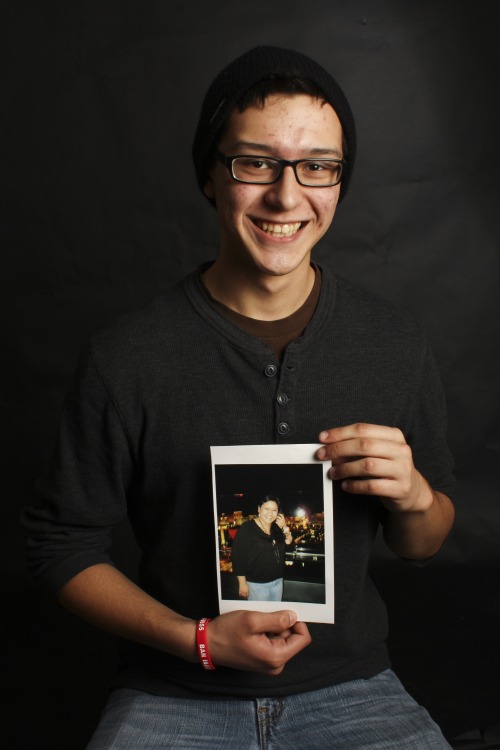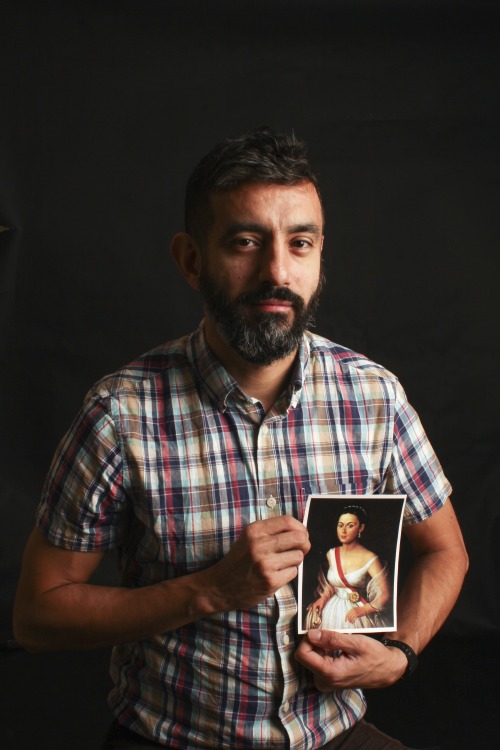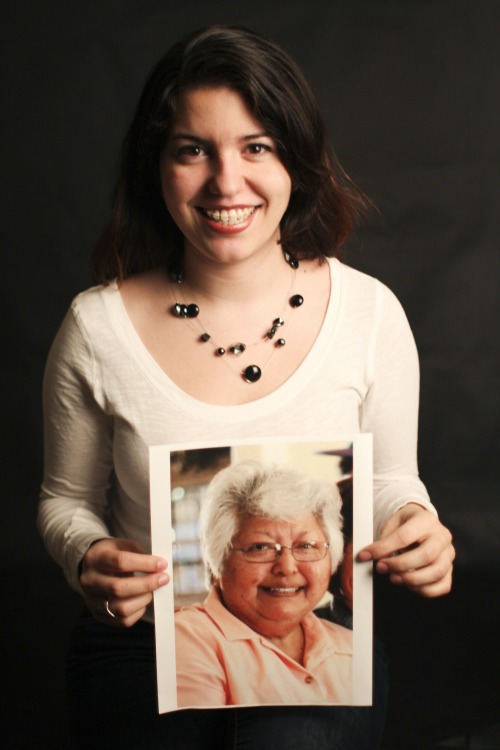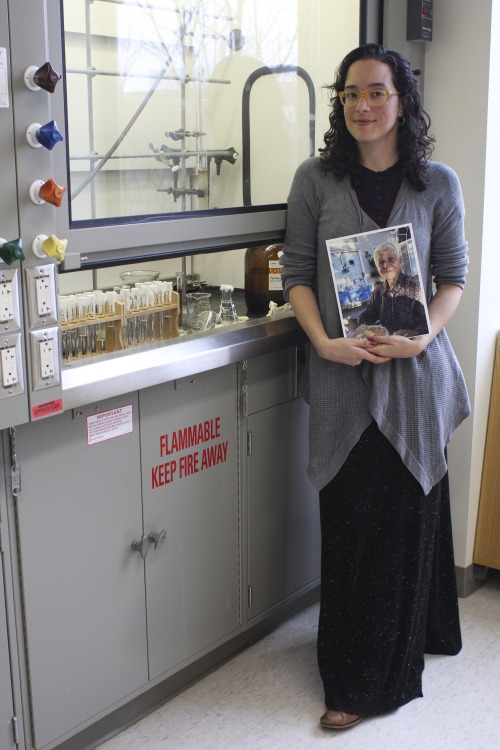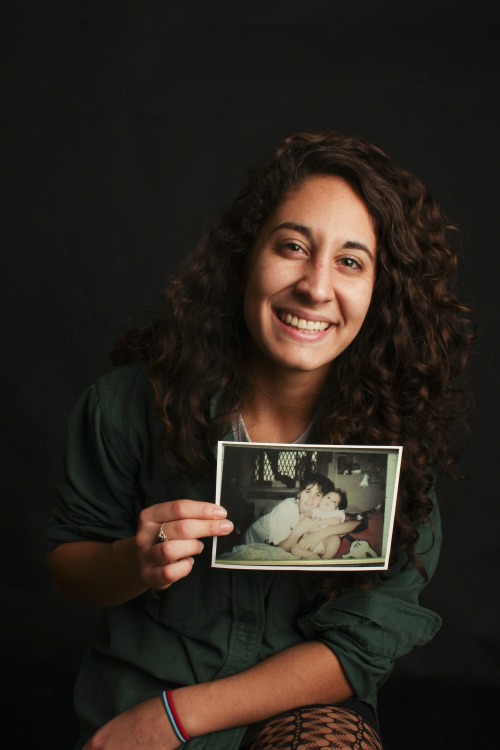Feministas Clandestinas: An Underground Feminims Photo Project part 2Feministas Clandestinas is a po
Feministas Clandestinas: An Underground Feminims Photo Project part 2Feministas Clandestinas is a portrait project we undertook to honor the Latina womyn that came before us. Using Aida Hurtado’s concept of underground feminisms, we sought to negotiate the gray area created when womyn who are not exposed to scholarly feminism or who do not identify as ‘feminists’ for whatever reason embody so much of the theoretical underpinnings put forth by feminist academics. This collection of photos and testimonios is a means of including narratives about the mujeres in our lives that have not embody their own kind of resistance but have heavily informed our developments of what it means to be a feminista. part 1 Michael Simonds Maria Simonds, my mother, taught me many things as I was growing up . She taught me how strong a woman is and how caring they can be. She taught me forgiveness was a virtue and that love should not be given freely. She put everything into raising her family without losing respect for herself. She was probably the most influential person in my entire life. This paragraph could not begin to capture her grace and her strength which is why I chose her as my mujer. Marcelo Vinces, Ph. D I chose Manuelita Saenz as my feminista clandestina. Back in 2005, a friend of mine from Venezuela lent me her book entitled Las más hermosas cartas de amor entre Manuela y Simón, acompañadas de los Diarios de Quito y Paita, así como de otros documentos, or The most beautiful love letters between Manuela and Simon, accompanied by Quito and Paita Diaries and other documents. My parents had taught me lots about Ecuadorian history, and I had taken a great course on Latin American history in college where I did a final project on one chapter in the history of Ecuador, so I knew lots about Simon Bolivar, the George Washington of Latin America, but never learned about Manuela Saenz, this very prominent hero of the wars for independence of Ecuador and the other parts of the New World colonies of Spain. Reading this book and discussing it with my friend reminded me of how much recorded and official history leaves out. Reading Manuela’s thoughts in her letters and diaries, you’d think it was written by a 21st century woman, having, for example, saved the life of Simon Bolivar during an attack, and serving as a spy for the armed forces fighting the Spaniards. However, Manuela dies in exile in Peru, poor and cursed by enemies of Bolivar who exile her from Colombia and Ecuador. She was far ahead of her time, and in her way, an underground feminist. After reading the book, I asked my mom if she knew of Manuela Saenz, and she replied, “¿Manuelita? Claro que sí.” That’s how she’s called by Ecuadorians. Manuelita, a heroine spoken fondly not in books and classes but revered in collective memory. Arielle Lewis-Zavala My tía Cipriana She is the only woman I have personally known to tell off my dad (her little brother). She raised her 5 kids mostly by herself. When she’s warm, I trust that it’s sincere and genuine because she doesn’t seem to waste her time on bullshit compulsory mannerisms that so many women are socialized to engage in, like acting approachable when we don’t want to be. Chelsea Martinez, Ph. D Before I knew what other grandmothers were like, what other religious people were like, what other people who did domestic work were like, and what feminists were like, I knew my grandmother Celia. Most of what I first knew about bodily labor comes from watching her and hearing her stories. In graduate school, doing organic chemistry research, I didn’t have many role models for the intellectual side of the job—the thinking, writing and performing—but the other side—the long hours, the heavy lifting, the utilitarian wardrobe, the hands dry and polish-free from daily dishwashing and waste disposal—felt familiar and respectable, knowing she had spent decades doing similar work towards very different ends in the homes of other families as a young woman in Costa Rica, and later raising my mother and aunts and uncles in California. Dyaami D’Orazio This picture is about my mother, my mommy, mi mama, Maria D'Orazio, who is my #1 Latina Feminist. She immigrated to New York City (the Bronx) from Venezuela at the age of 15. She lived with her sister and braved the subway for four hours a day just to go to high school. She got a job and did well in school, made friends and joined the tennis team, and despite the danger and difficulty of living in the South Bronx, managed to make a life for herself. At 19, she owned a building in the South Bronx, collecting rent and evicting tenants, and a year later gave birth to me. My mother managed to own a building, continue school until she had to drop out, and began to raise me and then my younger sister. Skipping forward a bit, my mother pushes me to play music, play sports, cook and clean, read etc., telling me that I could not end up like her. And here I am at Oberlin College. I think about the fights she had with my father, with schools, with Coaches or counselors (or anyone who got in her way, really), to get what she thought was necessary for us (three girls) to get an education and become independent young women. No one asked my mother to get up every day and work hard. No one asked her to provide for her kids, to cook their meals and make sure they did their homework. That came from her heart because she could not have what she gives to us: a life larger than children and worrying about money. Her feminism comes out in the strength she had, and on occasion in the strength she did not have, in her conversations with us and in the insistence that we have to go after what we want and we should never take “No” for an answer. My mother fought hard and taught me to fight hard, to get me here and also to bring my education back in a way that is concrete, accessible, and life changing. I don’t think she knows what she started by sending me here, but when I get home I am going to try and show her…how we can rise up and heal, how we can help others understand how and why we are beautiful in all of the ways, and how love and passion make a world of difference. LatinaFeminism4Lyfe. -- source link
#oberlin#oberlin college#latina#latinas#latina feminisms#feminism#testimonial#photography#underground feminism
